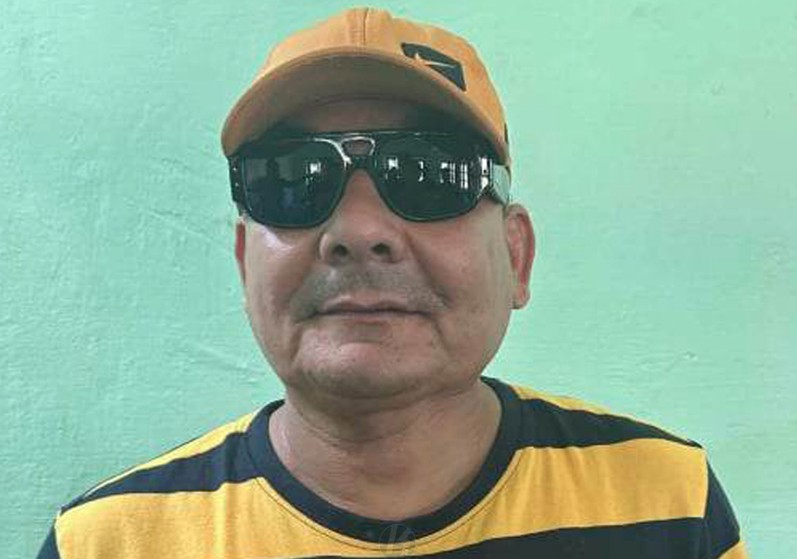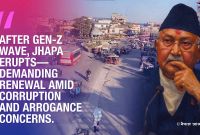Durga Prasai Arrested in India! Royalist Propaganda Collapses as Indian Support Proved False

Kathmandu— In a stunning turn of events, fugitive royalist leader Durga Prasai has been apprehended in Assam, India, and swiftly returned to Nepal, delivering a crushing blow to claims of Indian backing for the pro-monarchy movement. This dramatic arrest, executed with the full cooperation of Indian security agencies, sends a resounding message about the deepening security partnership between Nepal and India.
Despite initial denials from Nepal Police on Thursday night, which were later revealed to be a strategic maneuver to maintain operational secrecy, it is now confirmed that Prasai was indeed captured in Assam. Police sources disclose that the denial, issued by spokesperson Kuber Acharya under the direction of IGP Deepak Thapa, was crucial to securing Indian cooperation and ensuring the mission's success.
"The Indian side showed keen interest in cooperation," a senior police official confirmed. "To avoid jeopardizing that, we had to maintain secrecy. The denial was a necessary tactic."
Contrary to Prasai's secretariat's Facebook claims of a voluntary surrender, sources reveal he was apprehended in Assam and transported to Nepal after a grueling 10-hour journey under escort.
India's Diplomatic Power Play
Prasai's arrest effectively dismantles the widespread speculation that India was secretly supporting the restoration of the monarchy in Nepal. This action serves as a clear political statement: India, as a democratic republic, does not endorse royalist agendas in neighboring democratic states.
Following established practices, both nations cooperated to facilitate the transfer of the fugitive across their open border. "To avoid legal complications of a formal arrest inside India, it was made to appear as if he was apprehended near the Nepali border," a senior police officer explained.
High-Level Preparations and Legal Fallout
The arrest followed a high-level confidential meeting between Home Minister Ramesh Lekhak, IGP Thapa, and senior security officials, who meticulously planned the operation to prevent leaks and ensure Prasai’s safe return.
Earlier, Minister Lekhak had condemned the royalist uprising at Tinkune as an attempt to "tear up the Constitution," following incidents of civilian deaths, arson, and attacks on party offices allegedly orchestrated by Prasai.
Prasai has now been presented before the Kathmandu District Court, with police seeking a 12-day remand for investigation into charges of attempted murder and other serious offenses. His bodyguard, Deepak Khadka, has also been detained.
This arrest follows the detention of other royalist figures, Rabindra Mishra and Dhawal Shumsher Rana, who were previously remanded for 15 days of preliminary investigation following the March 28 (Chaitra 15) incident.
What This Means for Nepal and India
Durga Prasai’s arrest delivers two crucial messages:
- Nepal-India security cooperation is stronger than ever.
- Claims of Indian support for royalist movements in Nepal were utterly baseless.
The crackdown on Prasai not only reinforces Nepal’s commitment to its constitutional order but also underscores India’s mature diplomatic stance in promoting regional stability. This incident highlights that Nepal, with robust support from its regional ally, is determined to strengthen its democratic practices and uphold the rule of law.




![From Kathmandu to the World: How Excel Students Are Winning Big [Admission Open]](https://nepalaaja.com/img/70194/medium/excel-college-info-eng-nep-2342.jpg)
